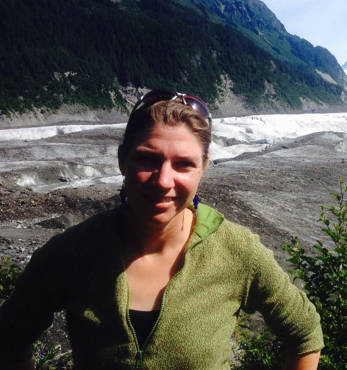Libraries have always held a special place for me in communities large and small all over the world—attending language school in Chile, teaching in Indonesia, on many college campuses (all of my own and where my husband attended school). The Rasmuson Library at the University of Alaska Fairbanks is where I scheduled meetings with my PhD advisor countless times and probably will again in the final phases of dissertation completion. The phrase, “Let’s meet on floor 2, outside the Oral History room,” is one of the most memorable from the entire process. Financially, libraries have been essential because of the thousands of books cited for my thesis and dissertation, dozens more for academic papers and journal articles and hundreds more just for personal entertainment for family and myself. If purchased, all of those would have added substantially to the cost of my education and I would need another room in my house! The books already take up the most space.
Locally, The Homer Public Library is where I spent many hours musing over my dissertation composition and prepping for academic conferences. For my family, it’s where I frequently brought my young children to story hour, literacy and arts events. It is where I am sitting to write this now.
I remember the previous Homer library space clearly, even the specific aisles and the round child area, in the old building on Pioneer Avenue where I could walk to from grade school and junior high as a place to do homework or just “hang out” until my parents could take me home.
I believe libraries are critical to general public awareness of the world around us. This is where we can find access to truth, accuracy and clarification of what “is.” Libraries provide society with credibility: carefully composed books on history, science and any thing else one might care to explore. They give us information on cultural shifts that have fabricated the world to the state that it is in today. Libraries give us methodology, “how to” trustworthiness. How to interview, how to write, build, garden, how to mend and fix the things we use everyday.
Books on the shelves are structure, a backbone; they let us prove what we believe and say and hold us up, support each personal opinion however we choose to use them. They give us posture and balance. In research, my bibliography is likely the most scrutinized component in a piece of writing. It verifies what I want to tell you. I’ll admit that Internet browsing can help provide a view to the world around us, but it is simply not as credible as a carefully composed publication. Today, I walked into the library and immediately saw an array of books available, both fiction and nonfiction, about North Korea. Careful displays like this encourage library visitors to engage and improve our community’s awareness of important world events.
What else does it give our community? A safe place, a harbor where anyone can visit regardless of what they do or do not have. It’s a place to be warm, to spend your time if you have nothing else available, a place to just “be” in a sanity of silence. It’s unbiased — patrons attend to whatever they please as long as they behave in a manner that’s acceptable to library routine. I see diversity here on an almost daily basis. It’s peaceful and calm and accommodating regardless of whatever personal intentions or challenges one has. From an ideological perspective, there are really few other public spaces that truly provide this neutral opportunity. There is no judgment to those who visit. Aside from books, I see the HPL as a “Green Dot” space, a place where I see postings for other dedicated social service organizations, and information for community events.
Please support our local library in whatever way you can. Let others know the value of the library to you personally. Ours is, literally, one of the best I’ve ever encountered!
Emile Springer is processing the final version of her doctoral dissertation titled “See Change, Know Fish: Catching the Tales of Fish and Men” through the University of Alaska Fairbanks. Her research in the Department of Anthropology is based on interviews and oral history collected in Cordova over the past five years. Springer is a multi-generation resident from the Kenai Peninsula, member of the CIRI and Ninilchik Tribe and has family connections and marine policy research experience to many other state and federal commercial fisheries.



